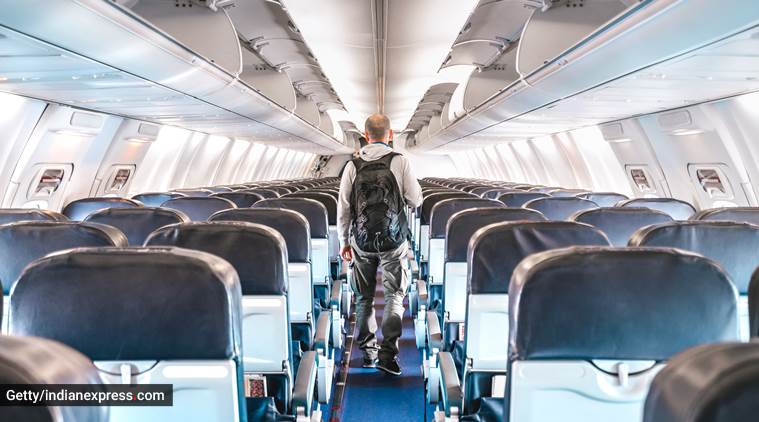
The Indian Express
Fear of flying: Negotiating the regulations around flights sounds incredibly daunting
The sight of cabin crew kitted out in PPE will be a sight to behold, a vivid and unforgettable reminder of our dystopian new world.
by Leher KalaPeople stranded away from their homes in different parts of India have welcomed the news that airlines begin services today, May 25. It’s not hard to imagine though, anybody getting on a flight will be doing so with a fair amount of trepidation. When this announcement was made, Union Civil Aviation Minister HS Puri was quoted as saying, “It does not seem domestic flyers will need to be quarantined”. Read and make of that what you may but the word ‘seem’ comes across as pretty loaded. A reasonable interpretation would be that in this fraught Covid-19 scenario, a traveller best be prepared for any complication that may arise once he lands. Like a mass quarantine because a passenger in the vicinity turned positive. Or, much more likely, the frustrating chaos that’s bound to arise because of contrary and inexplicable rules between the Centre and the states.
Since the only people likely to be boarding a flight are those absolutely desperate to get somewhere, the risk is worth taking. Issues range from separations from children, parents’ ill health or a business floundering because an owner was far away when lockdown was announced. Otherwise, who will risk becoming a victim of Puri’s other ominous statement: “The rules of different states will have to be followed.” The Gurgaon administration has already said that fliers landing at Delhi’s IGI airport will have to go into a 14-day mandatory home quarantine. They have asked all intercity passengers to apply for a movement pass two days before arrival. Anyone entering Uttarakhand via flight or road must endure a two-week quarantine in a state facility. Goa is imposing similar restrictions on anyone travelling into the state after there was a sudden spurt of cases last week, traced to their porous and unmanned village routes. At the time of going to press, approximately 11 states have announced some kind of mandatory quarantine.
While resumption of air facilities is reassuring that life is limping back to normal, this lack of clarity on what happens at arrival is, I imagine, terrifying for passengers. The confidence level that domestic air travel is reasonably safe is as it is, close to zero. Admittedly, people are less scared of Covid-19 than of the delays, lockdowns or quarantine that may follow but the virus looms large in our imagination. The primary issue with flying, or taking a train or bus for that matter—is the threat of being seated within six feet of a Corona-infected person. Since even asymptomatic people can transmit, you have to account for the possibility that someone ignorant of their positive status may be seated right next to you, contaminating the shared armrest or sending virus droplets in the air.
Perhaps we will reach a point where technology will permit instant Covid-19 tests and results, and passengers can do one compulsory test a few days prior to boarding – a kind of foolproof way to ensure people infected are not boarding public transport. No doubt, in this climate, choosing to fly is a tough and risky decision. Neither is it comforting to read that the government took the sudden call to resume aviation because so many airlines are on the verge of bankruptcy. The crash in Karachi four days ago could not have happened at a worse time. It raises all sorts of questions about safety protocols that have been disrupted so completely over a 50-day lockdown. If I were a passenger, it would weigh heavily on my mind.
A way to see it, I suppose, is that every day we are faced with (smaller) decisions regarding risk. Like it’s a choice to wear a seatbelt in a car to minimise damage in case of an accident, similarly, a long list of checks for the post-Covid airport will emerge. Some things may actually improve. Like quicker immigration. The sight of cabin crew kitted out in PPE will be a sight to behold, a vivid and unforgettable reminder of our dystopian new world.